How do we symbolically get rid of our sins for Tashlich? Throw bread crumbs into water, dissolve our sins in water, etc. Eat apples and honey, go to temple, have a family meal together, light candles, do Tashlich, hear the shofar, pray, give tzedakah, greet with Shana Tova
But, in fact, tashlich has very simple, powerful concepts, with great relevance to modern young adult life. This article will guide you in seeing how this ancient There's nothing in halacha that requires you to do tashlich. It's customary, but not required. And although tashlich has a lot of traditions, none
The "Tashlich" prayer is said on the first afternoon of Rosh Hashana by a pool of water. Some have the custom to say Tashlich even on Shabbat. Most communities postpone saying it until the second day of Rosh Hashana in order to prevent God is with me, I will not be afraid, what can man do to me?
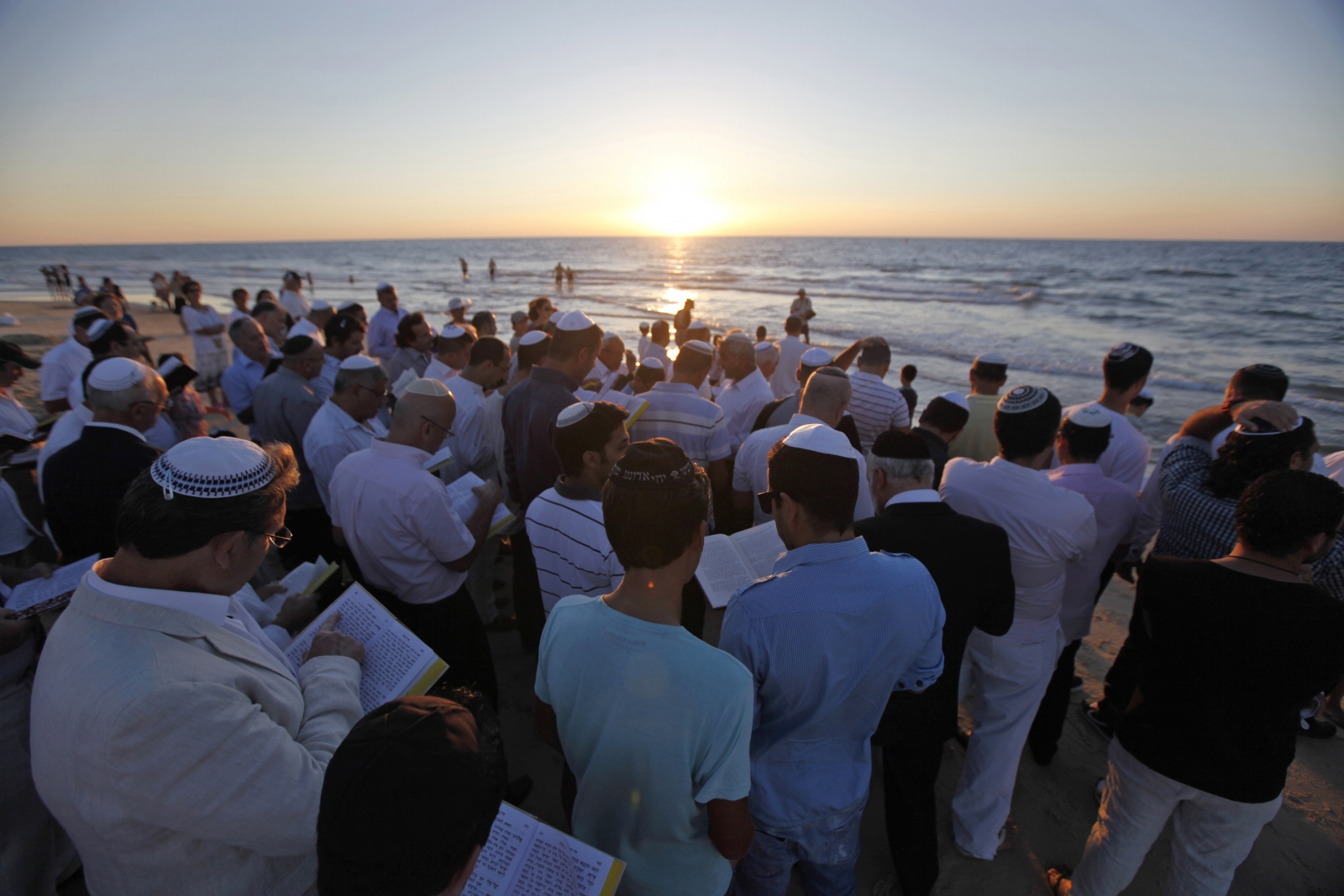
rosh hashanah jewish celebrate tashlich ritual jews prayer celebrated wear customs rituals clothes traditionally orthodox regular robe ibtimes
is the practice of standing before a body of water and tossing some fish food to represent the remaining sticky points within your persona that get in the way of your having/creating a good year. This is a gestalt type of experience, where you let go of clinging behaviors, memories and experiences. Good ritual facilitates desired change.

prayer english tashlich chabad text prayers hebrew kabbalistic jewish psalms judaism psalm holidays texts
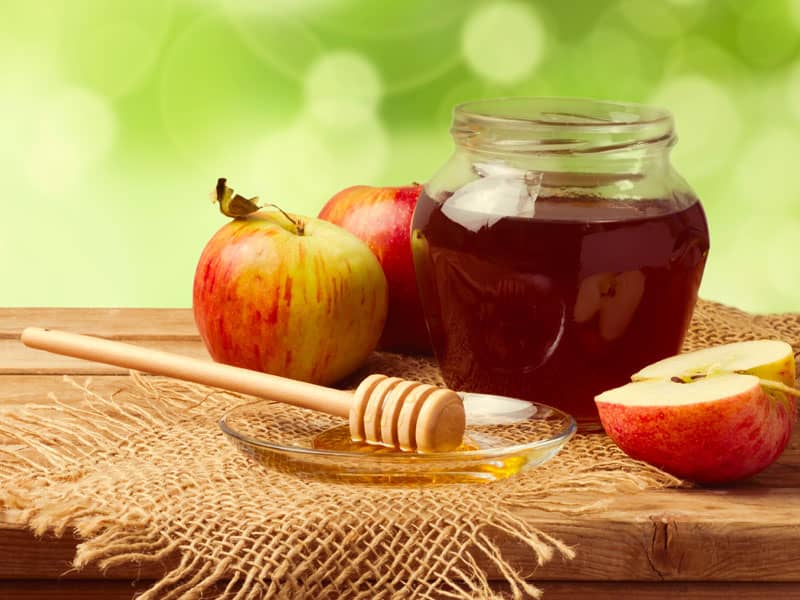
rosh hashanah honey apples change jewish judaism beliefnet ways celebrating foods during shutterstock eating traditions

tashlich breadcrumbs
Tashlich - The Casting. The origins of this custom are uncertain; it does not appear in the Talmud and it seems to have begun in the Middle Ages. We call it TASHLICH, meaning "you shall cast". As we cast our sins into the water, we look at the water and try to remember the creation of the world by
All belzer shtieblach said Tashlich ??"? after mincha (as per original minhag) at a fire hydrant. The Aruch HaShulchan states that it is preferable to avoid the Tashlich ritual entirely since it leads to prohibited social mingling. The whole ritual is based on the belief of the Maharil that there is a link
Tashlich calls us to cast our sins into a body of water like an ocean, river, or lake. Usually observed on Rosh Hashanah, Tashlich can be done any day until Yom Kippur. Speak how you plan to do better: Do my relationships reflect kedusha (holiness)? Can I be there for people who need me?
Tashlich, which literally translates to "casting off," is a ceremony To find out more about cookies and how to manage them, please take a look at our cookie policy. Kids can easily grasp the ideas of wanting to do better and saying "sorry," so including them in a simple, age-appropriate
Tashlich is a custom of observant Jews to literally cast away their sins in a body of water. It is practiced during the Jewish holiday of Rosh Hashanah. Some Jewish communities prefer to perform Tashlich on one of the ten days that precedes Yom Kippur while others have the custom of allowing people
FShare. Tweet. On Rosh Hashanah (Jewish New Year), there is a ceremony called Tashlich. Traditionally we go to the ocean (or a stream or river), pray, and then throw bread crumbs onto the water, for the fish can symbolically eat their sins. You ask what kind of bread crumbs should we throw?
Of all the things we do during the Jewish High Holidays, Tashlich might be my favorite!Tashlich is a ritual we perform in the Jewish New Year following
Here you may to know how to do tashlich. Watch the video explanation about Performing the Ritual of Tashlich for the Jewish New Year Online, article, story, explanation, suggestion, youtube.
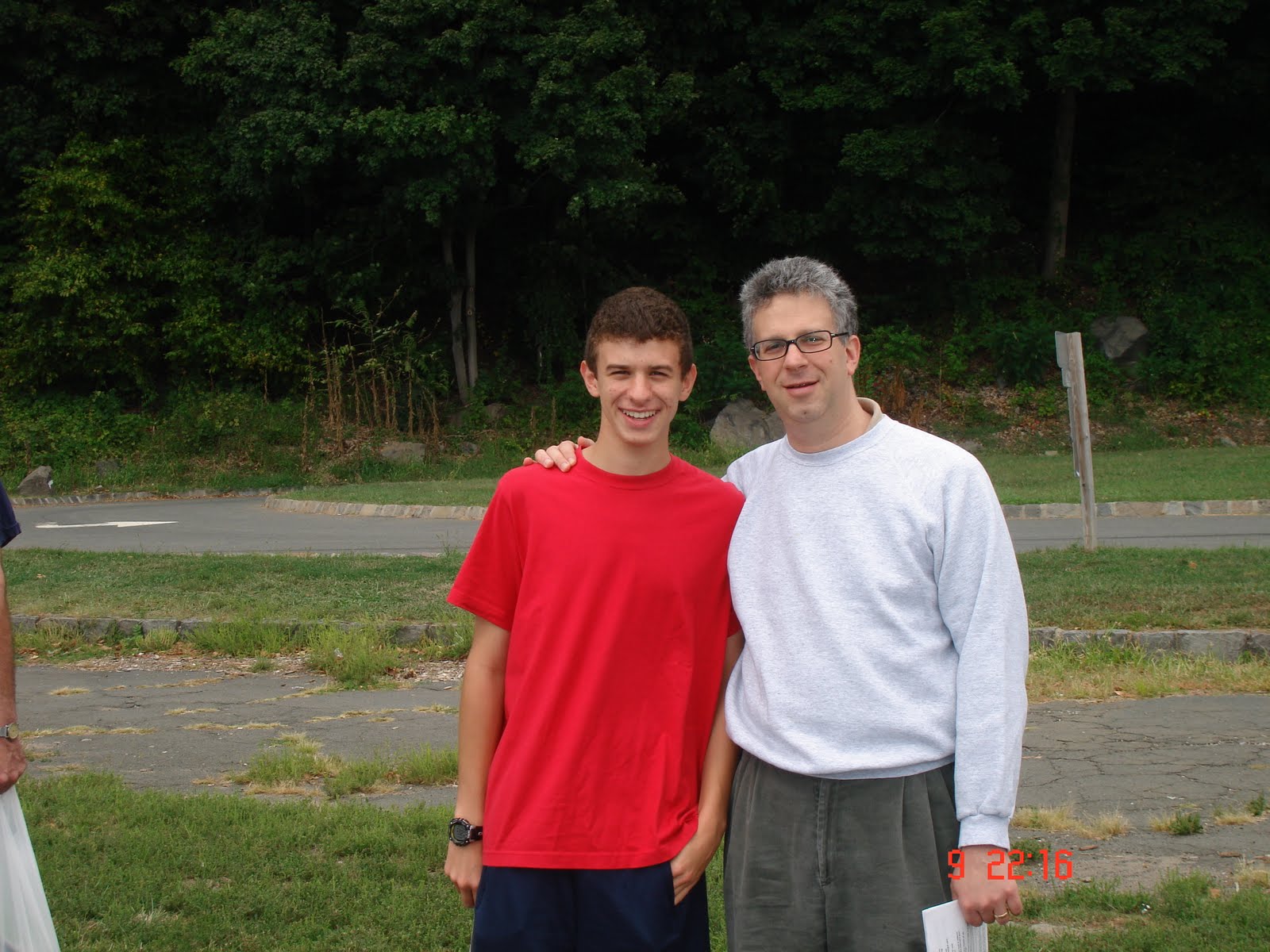
tashlich yor יא gut wish happy
The word "Tashlich" means "You will cast away." Tashlich is preferably recited alongside a body of water containing fish, to remind us that just as fish are protected by the water in which they And even as the eyes of fish are always open, so do we pray that G-d too will keep vigilant watch over his people.

yom kippur cnn observe
How do these middos correspond? Tashlich is recorded by the Rama and the Arizal, and has, of course, become standard practice. It is interesting to note that the earliest sources for tashlich are all Ashkenazic authors, and later the custom spread to Sefardic communities.

happilyeverelephants rosh hashana yom kippur sukkot
What do I need? Tashlich can be performed in a small group or alone. While communities sometimes gather together, this year we are encouraging everyone to perform the ritual in small Don't bring a whole loaf. We aren't feeding the fish; we're casting off our sins. No need to ruin ecosystems to do it.
Look for a natural body of water that you can access easily. Tashlich requires that you cast your sins into a body of water like a river, spring, lake, pond, or well. Most people prefer natural, flowing bodies of water because it gives the effect of your sins being swept away by the current, as God promised.[1] X Research source If you’re having trouble finding a place t…Opt for a body of water that has fish living in it if you can. Fish are extremely symbolic for the …See all 3 steps on (35)Views: 19KEstimated Reading Time: 8 minsPublished: Mar 19, 2018
tashlich pxhere pismo horizon kanadastisch coastline
The reasons for the Tashlich custom, its history, and how it's Re: what to do Special verses are recited next to a body of water, such as a sea, river, stream, lake or pond, preferably one that has fish (though when no such body of water was available, some rabbis were known to do Tashlich
Tashlich?". Jewish Action online. Archived from the original on 2007-08-10. ^ Rabbi Yirmiyahu, Kaganoff. "Appreciating Tashlich". Retrieved 2 September 2013.
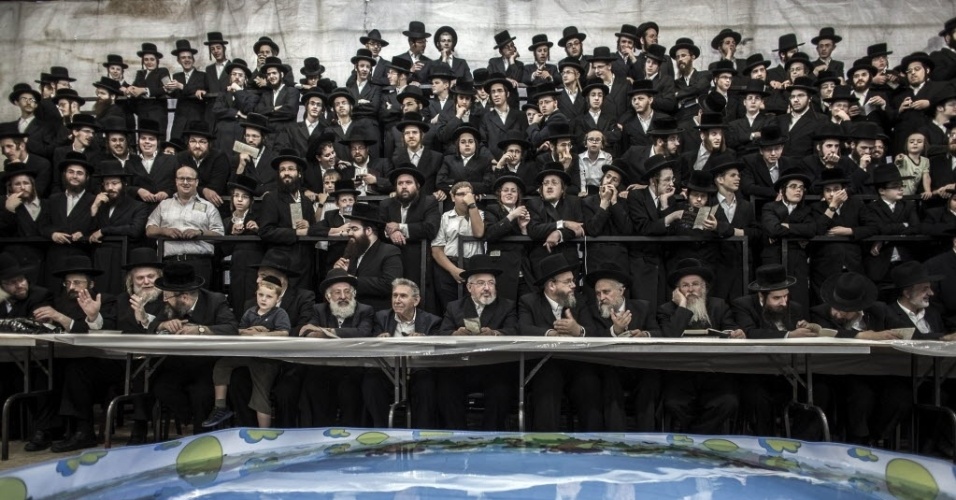
Do we do Tashlich on Shabbat? The practice was inspired by Micah 7:19, which reads, "God will take us back How do you celebrate Rosh Hashanah 2020? Traditions of the Day During Rosh Hashanah, Jews may take one or two days off from work, attending High Holy Day Services, gathering with
![]()
jews praying hasidic sukkot jewish orthodox israel culture pray photographs during petapixel ultra lulav branch palm tree throw traditional
On the first day of Rosh Hashanah, we go to a lake, river or to the sea, and recite the Tashlich prayers, where we symbolically cast our sins into the On the first day of Rosh Hashanah after the afternoon prayer, we go to a lake, river or sea (preferably a body of water that has fish), and recite the Tashlich prayers, wherein we symbolically cast our sins into the water …

In Hebrew, tashlich means "casting off," a phrase we hear a lot around Rosh Hashanah and Yom Kippur—you know, as in "casting off your sins." In the Jewish tradition, we've taken to acting out this phrase somewhat literally. Because sins aren't tangible, though, we use small pieces of bread or

silent prayer proverbs stay necessary ask
When should you do Tashlich? Tashlich is supposed to be performed on the first or second day of Rosh Hashanah., preferably directly after Mincha. However, if you're unable to perform the ceremony at that time, Tashlich can be done any day during Rosh Hashanah until Yom Kippur.
Press ESC to close. Why do we do tashlich? Tashlich, which literally translates to "casting off," is a ceremony performed on the afternoon of the first day of Rosh Hashanah. Then, How Many Days of Awe are there? In Judaism they're known as the "Days of Awe"—10 days of repentance and
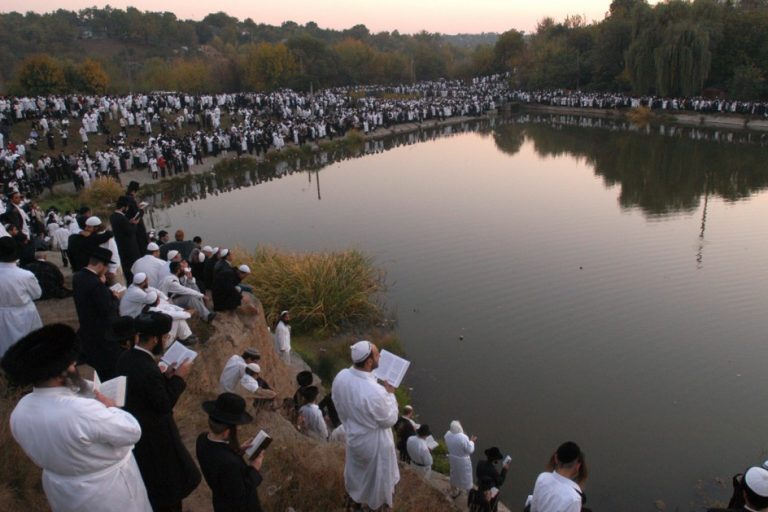
uman tashlich rosh hashanah ukraine jewish rabbi jews drowning fatal tragedy before pilgrimage sins holidays water park hasidic praying info
So what if you want to do tashlich but don't have running water nearby? Talk about the ways in which you've each made mistakes that year. After each mistake, throw a bean into the bowl. At the end, point out how, though you can see your mistakes, they do get overwhelmed by the other beans,
You can do Tashlich any time during Rosh Hashanah, as long as it's before Yom Kippur. Participating in the ritual can help you prepare for the new year and help you come to terms with the They might have some advice on how to prepare yourself to relinquish the mistakes and sins of the previous year.
This page is based on the copyrighted Wikihow article "Do-Tashlich" (Authors)

The Tashlich ceremony includes reading the source passage for the practice, the last verses from the prophet Micah (7:19), "He will take us back in love; He will cover up our iniquities. You will cast all their sins into the depths of the sea." Selections from Psalms, particularly Psalm 118 and Psalm 130,
means to “cast.”. The Tashlich service is held on Rosh Hashanah beside a flowing body of water where we symbolically cast our sins (using bread crumbs/seeds) into the water symbolizing repentance ( teshuva ). The earliest reference to Tashlich is in the book of the Prophet Nehemiah (8:1): “All the Jews gathered as one in the street that is in front of the gate …
Video: How to Tashlich. Email Signup.
Tashlich is recited after Mincha, prior to sunset, on the first day of Rosh Hashanah. Tashlich is to be recited near a river, well, or spring that contains live fish. The custom is to allow saying Tashlich up until Tzeis Hakochavim if one did not do so beforehand. What is one to do if a river, well or spring
Reverse Tashlich. Fifth Annual. October 2, 2022. Register. Join environmentally conscious Jewish communities around the world in reversing the tradition of Tashlich. Remove human 'sins' (marine debris) from the water in a collaborative waterfront cleanup.
While it is suggested to do tashlich on the first day of Rosh Hashana, one can perform the ritual through to the end of Succot. As a friend of mine Tell us about your experience how it affected you and what you've gained from it in order to improve the next year. Please send in your stories in
One of the reasons to do Tashlich, according to is: "Another reason for saying Tashlich next to a river is because Rosh Hashanah is the day when we coronate G‑d as King of the Universe. If this is the case then why can Tashlich be done until Hoshana Rabba?
How Do I Do Tashlich? Printer-friendly version. By: Rabbi Goldie Milgram. "Tashlich is a Gestalt-like practice which has been a part of Judaism since at least medieval times. Each of us explores quietly to our selves what it is that we would most like to transform in the year to hard
